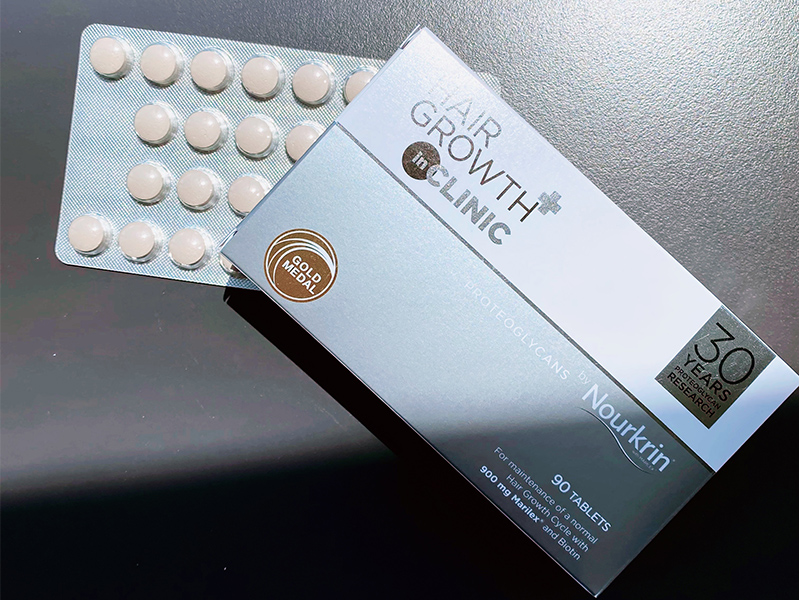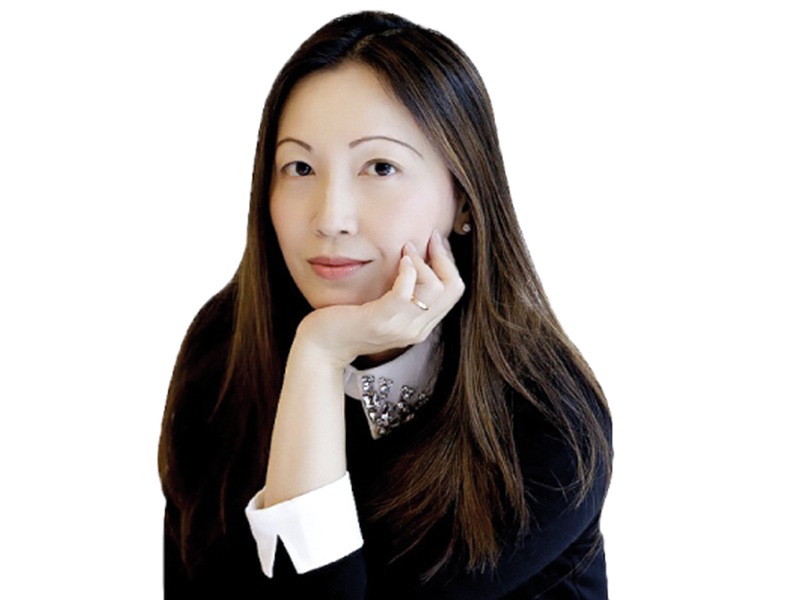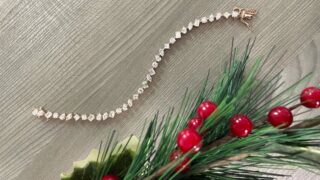Losing hair after giving birth is very common among new mums and pretty distressing! DR STEPHANIE HO, Consultant Dermatologist from Stephanie Ho Dermatology, sheds some light on postpartum hair loss and offers some advice and whether a hair growth supplement will help.
 Why does postpartum hair loss occur?
Why does postpartum hair loss occur?
Our hair goes through cycles of growth, rest and shedding. During pregnancy, the much higher oestrogen levels cause more hair to remain in the growth stage, so pregnant women enjoy much thicker, lustrous hair.
After delivery, the falling oestrogen levels mean that more hair goes into the resting and shedding stages at the same time. This shift – of large amounts of hair to this exit phase of the hair growth cycle all together – is why postpartum hair loss occurs.
Will all new mothers experience this hair loss?
Postpartum hair loss is common enough that most new mothers will experience it to some degree. And some of those women who don’t suffer from it during one pregnancy may do so during another.
When does the onset usually occur?
Usually around six to 12 weeks after delivery, and it often peaks about four months after giving birth. During this period, women can experience significant hair loss, resulting in the loss of hundreds of hairs daily, which can be quite distressing. As the oestrogen levels return to normal, the hair loss will also gradually improve. Recovery is usually seen six to 12 months after delivery.
Can postpartum hair loss be prevented?
You can help prevent postpartum hair loss by maintaining a healthy lifestyle during pregnancy and after delivery by maintaining a healthy diet, exercising regularly and getting enough sleep. However, despite best efforts, postpartum hair loss can still occur in almost 50 percent of women as it represents the normal process of hormone changes experienced during pregnancy and after delivery.
If the hair loss is not significant and not too worrying, we can monitor the condition and the hair will gradually grow back over time.
If I can’t prevent postpartum hair loss, how can I manage it?
Maintaining short hair can help to reduce the amount of tangling and the subsequent hair loss. Be extra gentle to your hair to prevent excess hair loss after pregnancy. Shampooing only when necessary is also helpful, along with using a good conditioner and a comb to minimise tangling.
Switch out elastic bands for scrunchies or barrettes to tie your hair and avoid pulling hair into tight ponytails. When blow-drying, turn down the heat – or skip blow-dryers, curling and flat irons if possible. Now would also be a good time to take a break from chemical-based treatments and postpone any highlights, perms and straightening treatment until the shedding stops.
Are there any hair growth supplements or therapies that might work?
Yes, you could consider treatments such as topical minoxidil, hair supplements or Proteoglycan Replacement Therapy. Studies have shown that during hair loss, the proteoglycan levels around the follicles are lower than normal. These specific proteoglycans are necessary for optimising our hair growth cycle. It can be useful to take oral supplements formulated with bioactive proteoglycans that address Proteoglycan Follicular Atrophy, which is an underlying cause of almost all cases of hair growth disruption, including postpartum hair loss.

Hair Growth+ inCLINIC by Nourkrin is an oral supplement for Proteoglycan Replacement Therapy; it’s drug-free with no known side effects, and clinically proven to help maintain a normal hair growth cycle and in turn support normal healthy hair growth.
Do you need to find a new hairdresser or hairstyle?

 Why does postpartum hair loss occur?
Why does postpartum hair loss occur?

